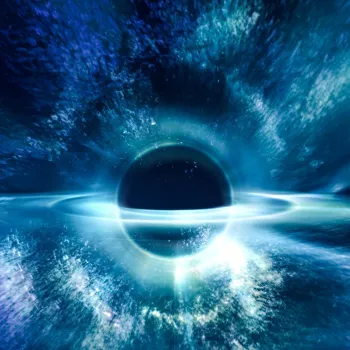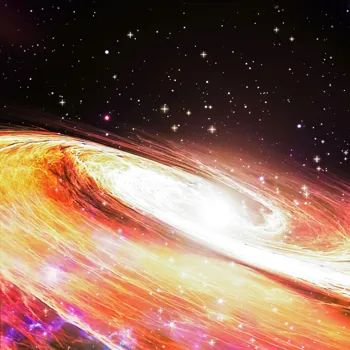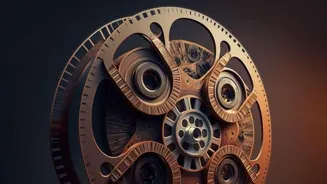Delve into the mind-bending realm of time travel - from Einstein's theories to wormholes, paradoxes, and the tantalizing possibilities. Explore the complexities and limitations of theoretical physics.
Could time travel ever become a reality? Read on to unravel the mysteries and challenges of journeying through time
Time travel! The very words conjure up images of whizzing DeLorean cars, quirky professors, and the potential to rewrite history – or mess it up royally. It’s a staple of science fiction, but is there any real science behind the idea?

Can we actually bend the fabric of spacetime and jump to the past or future? Well, the answer, like most things in physics, is a big, fat "it's complicated," with a generous helping of "maybe." While we aren't building time machines anytime soon (sorry, Doc Brown fans!
), modern physics offers some intriguing, and sometimes mind-boggling, possibilities and limitations. Let's dive into the world of theoretical physics and see what it has to say about the chances of taking a trip through time, shall we?
We'll explore the theories, the paradoxes, and the reasons why time travel, while fascinating, remains firmly in the realm of speculation for now.
Einstein's theory of relativity shows speed affects time, hinting at future time travel
Albert Einstein, the OG of modern physics, laid the groundwork for thinking about time travel differently. His theory of special relativity, published way back in 1905, showed that time isn't this constant, universal thing that ticks away the same for everyone.

Instead, time is relative – its passage depends on your speed. The faster you move, the slower time passes for you relative to someone who is standing still. This isn't some philosophical mumbo jumbo; it's been experimentally verified with atomic clocks flown on airplanes.
They tick ever-so-slightly slower than clocks on the ground. The key takeaway is that speed affects how we experience time. This leads to the possibility of future time travel being theoretically possible. Consider the "twin paradox".
Imagine one twin blasts off into space on a super-fast rocket while the other stays back on Earth. When the space-faring twin returns, they would be younger than their Earth-bound sibling. They have effectively traveled into the future, albeit a small amount.
This is time dilation at work, a well-established phenomenon. The faster you travel, the farther into the future you could potentially leap. Of course, achieving speeds close to the speed of light requires immense amounts of energy, something way beyond our current capabilities.
So, while theoretically possible, future time travel via this method is practically a distant dream.
General relativity explains gravity as spacetime curvature by mass, suggesting wormholes for time travel
General relativity, Einstein's next big hit, takes things even further. This theory describes gravity not as a force, but as a curvature of spacetime caused by mass and energy. Imagine spacetime as a giant trampoline. If you place a bowling ball on it, it creates a dip.

This dip is what we perceive as gravity. Now, if you could warp spacetime enough - create a huge "dent" or even a "fold" - you could potentially create shortcuts through spacetime, theoretically.
These shortcuts are called wormholes, and they are the darling of many science fiction stories involving time travel. Think of a wormhole as a tunnel connecting two distant points in spacetime. One end of the wormhole could be in the past, and the other in the future.
Enter one end, and you pop out in a different time. Sounds amazing, right? The problem is that creating and maintaining a wormhole would require something called "exotic matter," which has negative mass-energy density. We have never observed this in the universe.
Even if exotic matter does exist, the amount needed to keep a wormhole open would be astronomical, probably more than the mass of an entire star. Moreover, even if you could create a wormhole, there's no guarantee it would be stable or traversable.
It might simply collapse the moment you try to enter it or maybe it doesn’t allow movement through the time.
Future time travel theory poses challenges due to paradoxes, energy demands, and unstable wormholes
So, future time travel, while theoretically plausible according to special relativity, would require mind-boggling technology and energy levels.

Wormholes, the favorites for sci-fi writers, may exist as mathematical solutions to Einstein’s equations, but they are likely unstable and would require exotic matter to be even remotely practical. Now, what about going back in time?
That gets even trickier because it raises the specter of paradoxes. The most famous of these is the "grandfather paradox." Imagine you travel back in time and prevent your own grandfather from meeting your grandmother.
This would mean you would never be born, which means you couldn't have traveled back in time in the first place. So, were you born or not? Did you travel or not? These kinds of logical contradictions create major headaches for physicists contemplating backward time travel.
Several theoretical solutions have been proposed for such paradoxes.
Quantum mechanics: Many-worlds theory and universe safeguards
One idea is the "many-worlds interpretation" of quantum mechanics. This picture says that whenever there is a possibility for multiple outcomes, the universe splits into multiple parallel universes, each representing one of those outcomes.
So, if you went back in time and killed your grandfather, you would simply be creating a new, branched timeline where you were never born in that particular universe. Your original timeline would remain intact. You'd have changed a past, but not your past, which is quite a relief.
Another idea is that the universe has built-in safeguards or "consistency rules" that prevent paradoxes from happening. If you tried to do something that would create a paradox, some unforeseen event or circumstance would intervene to prevent it.
Maybe your time machine would malfunction, or you would suddenly find yourself unable to pull the trigger. The universe would somehow conspire to maintain a consistent timeline.
Time travel remains a distant dream, full of possibilities and paradoxes
While the possibilities of time travel continue to fascinate and inspire, there are significant hurdles to overcome, both theoretical and practical.
Right now, we don't have the technology or the understanding of physics to build a time machine, and paradoxes pose very serious questions that might be impossible to answer.
And, the universe may be having a bit of fun leading us to believe there can be possibilities of the things that we can achieve in our minds. So for now, time travel remains a dream, a captivating idea explored in stories and debated in physics labs. But who knows what the future holds?
Perhaps one day, with a deeper understanding of the universe and breakthroughs in technology, we might just be able to take that trip to the past (or the future) but for now, it is just another theoretical assumption.
Whether this theoretical assumption becomes a reality or not remains to be seen, however thinking about what might be possible or not will always be a question that can be brought up in the future.
AI Generated Content. Glance/InMobi shall have no liability for the content












